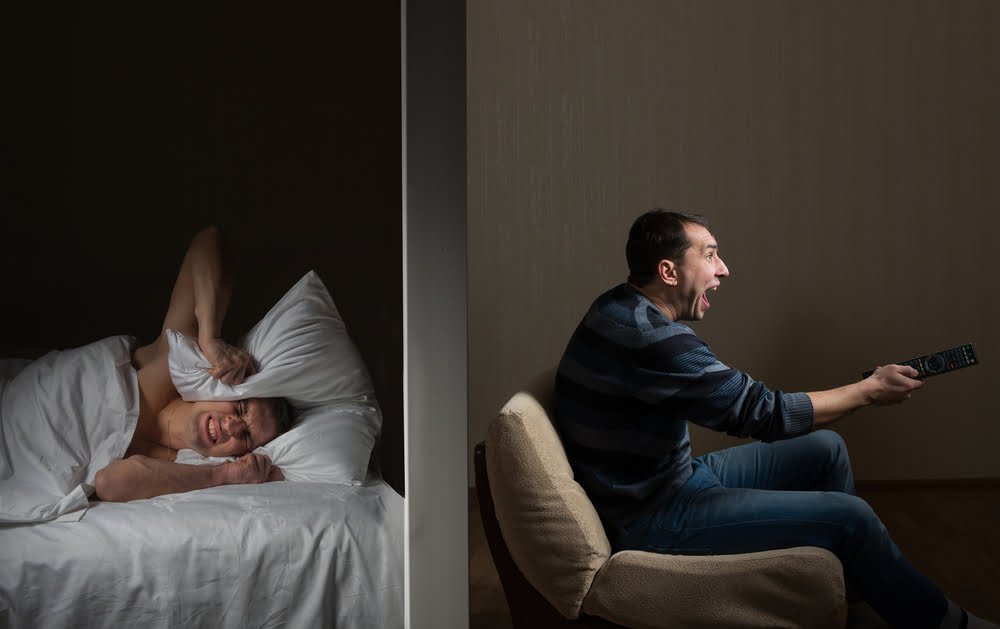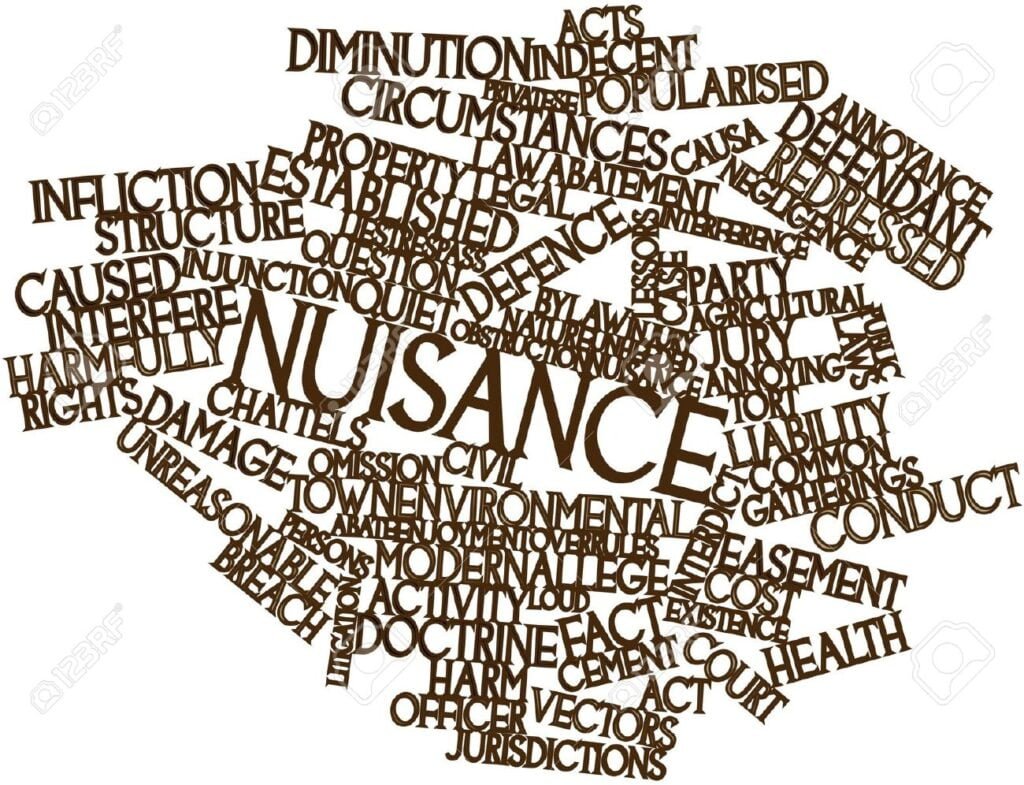Nuisance Neighbors Law: In the early years of this nation, there was plenty of land and few nearby neighbours. As the population grew and the number of cities grew, property issues were brought before the courts for resolution. The law of nuisance, one of the first judge-made theories used in property disputes in the United States, was brought over from England. Today's property conflicts still include this doctrine.
At the risk of oversimplification, this theory is typically invoked when a neighbouring property owner engages in conduct that might be considered a nuisance.
What exactly is a nuisance? (Nuisance Neighbors Law)
A nuisance is any use of a person’s property that is irrational, illegal, or unusual and that materially impedes the enjoyment of another property owner’s property. An example of a nuisance is:
- Unauthorised burning of materials,
- offensive signs or images
- offensive odours, loud noises,
- and illegal gambling are among more issues that should be avoided.
Certain circumstances may make a landowner liable to their neighbours for the noise, lights, or odours they emit. A few annoyance problems could also constitute crimes.
If the tenant is the one who is causing the nuisance, the owner of the rental property may be entitled to eviction.
A private annoyance only bothers a select few people, like playing loud music all the time that disturbs the person’s neighbours. Another typical example would be a neighbour who lets their dog bark all night long, keeping others from getting any sleep.

Such a problem could serve as the basis for a lawsuit for nuisance against a neighbour. After asking their neighbour to fix the situation, the person might be able to file a lawsuit if the problems continue.
The Nuisance Law
Neighbours frequently file lawsuits against one another under the law of nuisance, or a public official may file a lawsuit against a property owner on behalf of the broader public. By filing a lawsuit, the plaintiff typically aims to regulate or restrict the defendant’s use of their property.
The two most common types of nuisance lawsuits are. These behaviours are both private and public nuisances. A private nuisance is a loss of use or pleasure of property that doesn’t include an actual physical intrusion. A trespass action is one that seeks compensation for an actual invasion of property.
No of the sort of nuisance, interference with the property must be significant and ongoing in order to qualify for injunctive relief. Injunctive relief typically entails the defendant being ordered to take certain steps to lessen the adverse effects of its operations on the plaintiff, from restricting the action’s hours to outright banning it.
However, most courts will make an effort to weigh the respective hardships to both parties in the action when deciding how much relief to grant.
The court will work to lessen the financial burden on the business, particularly when it is an ongoing business rather than an individual who is named as the defendant in the action.
How Do I File a Lawsuit Against a Neighbour for Noise, Light, or Odour Emission Nuisance?
When a nuisance occurs, a court may issue an injunction ordering the responsible party to restrict or stop the behaviour that caused the nuisance. Damages may also be available to those who were harmed by the disturbance. The person who caused the disturbance can go to jail or have to pay a fee if it was criminal in character.
One must demonstrate the following in order to successfully sue another person for private nuisance:
- They own, lease, or rent property;
- The defendant upheld or fostered a situation that: endangered their health; was indecent or objectionable; or impeded their right to enjoy their property;
- The defendant’s actions were not authorised;
- The defendant’s actions prevented the property’s use and pleasure;
- An average person would fairly find the defendant’s actions upsetting or irritating;
- The person was in reality injured by the defendant’s actions, or their sleep was disturbed; and
- The seriousness of the harm outweighs the actions’ potential for public good.
Construction is one such activity that can be against local zoning regulations or bylaws. In these circumstances, a person may receive assistance from the town counsel or city attorney in bringing a lawsuit against a neighbour.
The inappropriate behaviour may be forbidden by the bylaws or rules of the community where the person resides, whether it be a condominium, cooperative, or planned community. If so, the person could get assistance from the homeowner’s association to make their neighbour abide by the limitation.

There are numerous measures one might take to file a lawsuit against a neighbour for nuisance if they feel that their neighbor’s actions are a nuisance. First, they could send a letter to the offending party asking them to stop doing that specific conduct.
Do Nuisance Lawsuit Defences Exist?
Yes, there are many defences that can be used to fight a nuisance lawsuit brought about by the release of sounds, lights, or odours. Examples comprise:
- The action is legal or appropriate;
- The hurt neighbour approached the existing noise, light, or odour emission;
- The neighbour who was being a nuisance was not careless;
- There are additional or supplementary causes for the annoyance;
- a person who has been hurt is unusually sensitive to noise, light, or odour emissions;
- The neighbour who was hurt is at fault.
What Can You Recover from a Neighbor’s Noise, Light, or Odour Emissions in Court?
In general, if someone wins a lawsuit against a neighbor’s noise, light, or odour emissions, they can be entitled to the following compensation:
losses, including compensation and future losses; the reduction or elimination of the nuisance; and fees for putting an end to the annoyance.
As mentioned earlier, a court may order a defendant to cease engaging in whatever conduct or activities are creating the annoyance. Legally binding injunctions can be enforced, and if the defendant disobeys its demands, they risk jail time or other penalties.
A judgement for compensatory damages may also be given to the plaintiff or the injured neighbour. These compensations are given in an effort to put the affected party back in the same situation they were in before the harm or loss happened. State rules on compensatory damages may differ.